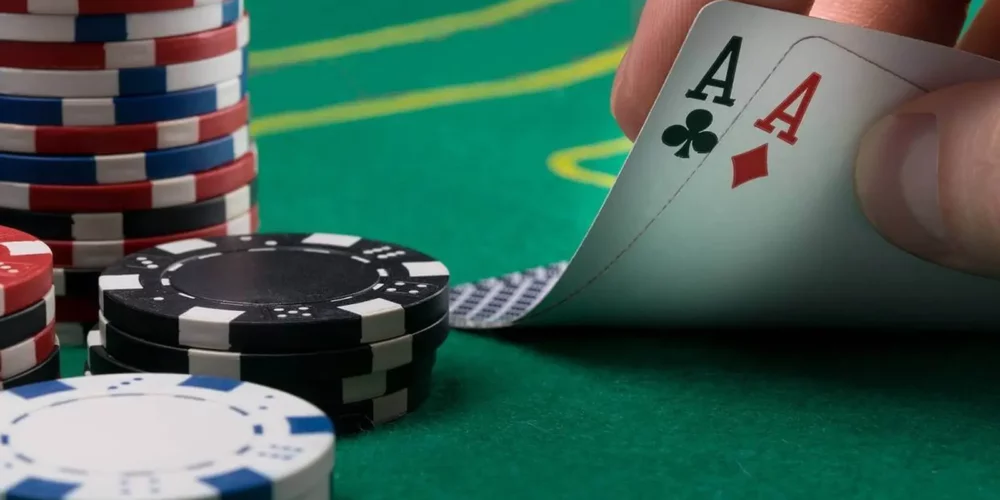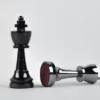No doubt, casino blackjack games are both striking and risky. You never know what the dealer’s hand is, right? And when the dealer shows an Ace, the dealer’s up card is risky for the player, especially when the second card (hole card) can turn out to be a ten or a face card. It means that a player loses. But what if we say that you can still benefit from it? Yes, we are talking about insurance bets.
What is Insurance in Blackjack: Is It Worth Your Money?
Last update: June, 2024

In most cases, they are half your original bet and you are paid 2:1. Plus, your hand can still have a higher value if a dealer doesn’t have blackjack, so you can win both ways. Sounds interesting? Well, now we are going to explain a few things: is it worth it to buy insurance to play at a blackjack table with it and what else should blackjack players keep in mind?
How Does the Insurance Bet Work?
Blackjack insurance is a hotly debated topic as some players are sure that it’s not profitable, while other players assure that it’s a good way to prevent risks. We also have a few words to add, so you will learn how blackjack insurance works, when taking blackjack insurance is really necessary, and how a casino player can benefit from it. Let’s get going!
Basic Rules of This Bet
In general, insurance is a side bet that protects a player and allows them to win if a dealer has blackjack. Of course, you can’t take insurance at any time as there are certain rules. The first one is the available time for taking insurance: players can do it only if the dealer’s upcard is an Ace. If so, players are prompted to take insurance or go on playing at the table with an original wager.
If you agree to decrease the risk level and buy the option, you have to pay half your original bet. After you’ve made the decision, the dealer checks it and reveals the second (hole card). If it is a ten or a face card, your insurance works for you and you are paid 2:1. Plus, the amount of the insurance at the table is also paid back. It means that a player breaks even.
Example:
You place a $100 bet and when a dealer’s card is an Ace, you opt for taking insurance. This way, you add $50 to your original wager. If it works and the dealer’s hole card is a ten or a face card, your insurance brings you $100. Plus, the insurance is paid back. This way, you break even as the amount of the $100 bet you’ve placed is paid back, while the insurance amount is also returned. That’s called the even money.
Well, it sounds exciting and you may opt for playing with this stake at any table all the time. But what if the dealer doesn’t have blackjack? In this case, you simply lose the insurance bet. And, according to the house edge and the odds (we’ll explain it a bit later), these cases are more frequent, so in the long term, you still don’t benefit from this stake, especially when you are a fan of a basic strategy.
The Odds of a Blackjack Insurance Bet
As well as with any other types of betting, the profit of blackjack insurance can be determined due to the odds. Numbers don’t lie, right? That’s why the blackjack strategy you choose must be based on the knowledge of the house edge. And an interesting fact is that the odds can vary: as blackjack is a deck game, the number of decks influences the outcome.
|
The number of decks |
House edge |
|
One deck |
5,88% |
|
2 |
6,79% |
|
4 |
7,24% |
|
5 |
7,39% |
|
8 |
7,47% |
As you can see, this side bet is profitable when casinos offer to play with a single deck. But that’s not all: those who have mastered card counting can also benefit from this side bet. If it’s a land-based casino and you are a card counter, you can understand how many cards are left in the deck. When you know that the cards like 10-K are already dealt, you have nothing to do with the insurance. And when you know that these cards are still in, your basic strategy can include this trick either.
But be aware that online casinos hardly ever allow players to count cards. Not because casinos prohibit it, but because they are shuffled continuously and it’s impossible to find out what cards are left.
In other words, you can take a risk and place an insurance bet, but only when the ten cards haven’t been dealt by the dealer yet and the deck blackjack dealers use is only one.
When You Should Place an Insurance Bet
We’ve already explained that when the dealer’s card is an Ace, players can take insurance. But they can avoid this option as well. And right now, we’ll explain when it’s a good idea and in what cases blackjack insurance should be avoided. Here we go!
The tips above explain that it’s a good idea when you are sure that you are playing with only one deck and 10-K cards are still in the game. But that’s not all as there is another case when the bet is worth your money. We are talking about the blackjack combination your two cards form. If both you and the dealer have blackjack, no one will win. But if you add an insurance bet, you can get an additional award besides even money.
And it’s considered that insurance is worth taking when the dealer must stand on soft 17, while you have 18-20 points in general.
But we still don’t recommend this type of betting for a long term game. The statistics prove that money in the long run will disappear quite quickly.
Is It Worth Your Money?
Here come two different examples to explain whether insurance in blackjack can bring you what you count on.
Imagine the first case: you have 8 and Q (18 points), while the dealer has an A, and the second card is a ten. According to the value cards on this round display, the dealer blackjack can make you lose. But when you are betting with insurance, you don’t win anything, but don’t lose anything either.
And now the second example is here. If you have 10 and 9, while the dealer has an A and a value card of 4. In this case, you will lose your insurance bet. But you will still win as you have 19 points, while the dealer has only 14.
Taking into account these two examples, you can sum up that it’s better to surrender sometimes as still more money will be saved.
To Sum up
Insurance in blackjack is a good option for card counters who understand how to pick blackjack tables, what value of the wager to choose, and when it’s better to surrender. But we don’t recommend blackjack insurance when playing regularly: don’t let the dealer grab most of your bets!
FAQ
What is a blackjack insurance bet?
Blackjack insurance is a side bet that is half your original wager. It pays players 2:1 if the dealer’s cards are an Ace and a card of a ten value (10-K). In other words, when the dealer has blackjack, players win even money.
Should I place a blackjack insurance bet?
This side bet for a table game is worth your time when it’s a one deck game and you are sure that 10-K cards haven’t been dealt yet (only card counters can reveal it). Plus, it’s a good option when you have a blackjack combination and want to protect it.
Is taking insurance available when I play for free?
You can take insurance in any mode: for money or for free. If you are choosing demo games, the rules are still the same, but both your wager and winnings will be virtual.
Does each casino accept the bets of this kind?
Actually, any casino must accept an insurance bet. But keep in mind that you will be prompted to do it only when the dealer’s upcard is an ace.






















